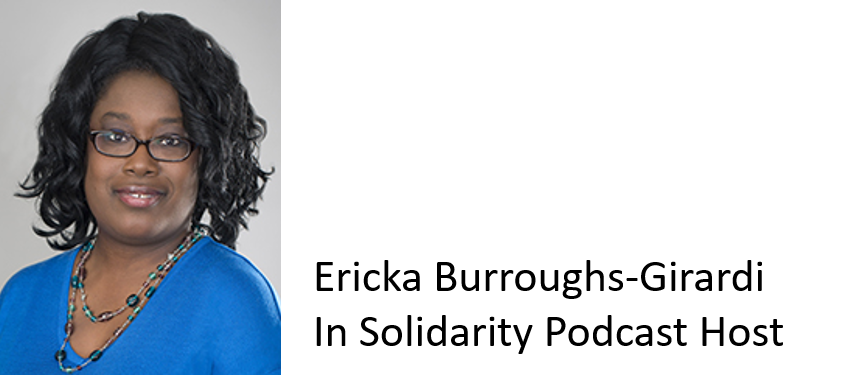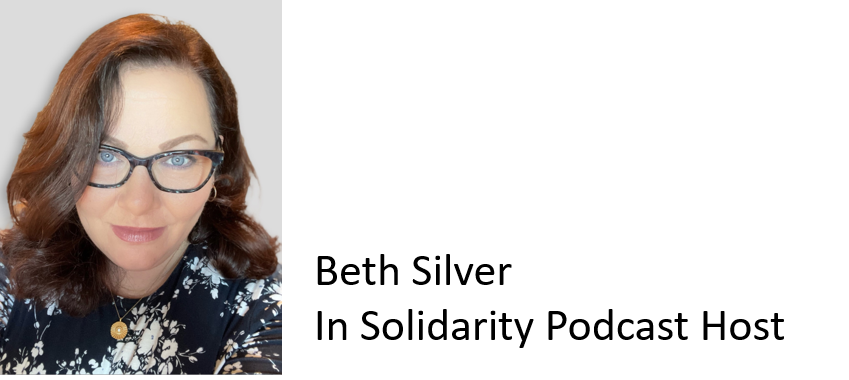Search
Embracing power and education for civic health
In this second episode of our three-part series, we’re tackling civic education and young people’s involvement in civic life: where we’re at as a country, what we can do to improve it and how it’s linked to our overall health. Host Beth Silver interviews prolific author Eric Liu, a self-described civic evangelist and CEO of Citizen University, an organization that promotes “powerful citizenship and civic education.” Silver and Liu discuss power, obligation and responsibility in a democracy.
Embracing the political: Organizing for change
How do we transition from organizing for change to enacting policy change? In this episode we’ll explore the power of labor unions to protect workers’ rights, health and wealth.
From public goods to private and profitable property
The idea of collective action for the common good has slowly given way in this country to private and for-profit … by design. If we’re going to improve health and health equity for everyone, we have to understand the shift away from the things once considered sacred public goods (i.e., public schools, transportation, infrastructure, and investment in all communities). In this episode, we talk with author Donald Cohen, who recently published The Privatization of Everything: How the Plunder of Public Goods Transformed America and How We Can Fight Back, to find out how we got here and how we can return to a mindset of social solidarity.
Introducing a new model of health
The University of Wisconsin Population Health Institute’s model of health focuses on how power and society’s rules—such as laws, policies and worldviews—shape health and well-being.
Introducing: Civic health
In Solidarity is back for a brand-new series exploring the connections between our civic health, our individual health and the health of our communities. We’re bringing you eight interviews with equity experts and authors Daniel Dawes, Dr. Peniel Joseph, Dr. Erika Blacksher, Dr. Julia Kaufman, Dr. Solange Gould, Aliya Bhatia, Jeanne Ayers and Dawn Hunter.
Introducing In Solidarity: Connecting power, place and health
Welcome to the launch of In Solidarity: Connecting Power, Place and Health. In this debut episode, hosts Ericka Burroughs-Girardi and Beth Silver introduce themselves and the theme for the podcast: social solidarity. Burroughs-Girardi and Silver explore how our lives and fates are interconnected, whether obvious or not. And they discuss how the two of them discovered a connection that shaped their lives before they were even born.
|
|
|
Introducing: Organizing for health
In Solidarity is back for a new series exploring the power of organizing to improve our health. We’re diving into public health’s history of organizing around just causes and the ways it can return to its powerful, political roots.
It's a wrap: Achievements of the past and a path forward
In its final episode, In Solidarity updates the field on CHR&R’s status. We look at achievements past and a path forward for the model of health and CHR&R’s data and strategies.
Leveraging the strengths of public health & health care for a healthy democracy
Public health and health care systems can play an important role in improving civic health. In the third episode of this series, hosts Beth Silver and Ericka Burroughs-Girardi dive into examples of public health and health care organizations’ efforts to increase civic participation. They are joined by Jeanne Ayers, the executive director of Healthy Democracy Healthy People, who discusses both challenges and victories to increase voter registration during the COVID-19 pandemic. Aliya Bhatia, executive director of Vot-ER, shares how bringing voter registration into emergency rooms, hospitals and community health centers has moved health beyond the exam room.


